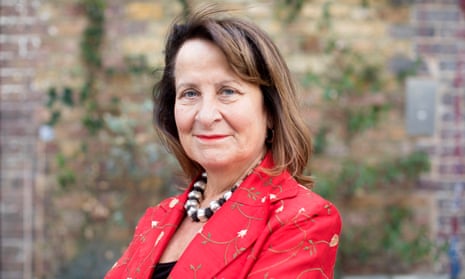Men in the legal profession need to “call out” other men if they witness sexual harassment, according to the barrister Helena Kennedy QC, who has urged such behaviour to be made the subject of disciplinary action.
In the wake of a fresh outcry over sexism among barristers and patronising remarks by judges, there have been calls for tougher action to prevent female barristers being forced out of the profession.
The issue was raised at the start of the week by Chris Henley QC, chair of the Criminal Bar Association, in a weekly message in which he shared stories from female colleagues.
One female barrister, who has young children, had been told by a male judge: “You should really think about whether the bar is right for you,” after she raised childcare issues when he wanted to sit late. Another young barrister said she had changed careers after a judge had shouted at her “like a toddler”.
Lady Kennedy, a Labour peer and campaigner against discrimination, said: “There’s a new generation of women who won’t put up with this stuff, but I don’t think it’s got any worse. Barristers are self-employed and at particular stages dependent on the goodwill of others to get pupillage or tenancy in chambers.
“All of these things involve a level of patronage. It makes women vulnerable. Young women come to me because they are still faced with [situations] when they go out of London, stay away, and lawyers suggests they share rooms or try a ‘come on’.”
Henley’s concerns were taken up by Joanna Hardy, a barrister specialising in crime cases at Red Lion Chambers in London, who posted a series of tweets complaining about male barristers’ behaviour.
Their comments highlighted the difficulties faced by female advocates in a profession driven by a competitive ethos, rendered inhospitable by unpredictable working hours, and where young lawyers are often reliant on older men for promotion.
Hardy recommended abolishing 9.30am hearings that make early-morning childcare more difficult for childcare and ending “warned lists” where barristers are summoned to court on the off-chance that their cases will be heard.
Her harshest rebukes were aimed at the misbehaviour of male barristers. “Don’t behave like you’re on a stag do,” she wrote. “If you’re a male in a male-heavy case, don’t ask the female counsel to fetch the coffee or pour your water. Try to remember their names. Don’t make repetitive jokes about breasts or skirts. Don’t communicate solely in innuendo.
“‘You’re worse than my wife’ is not an acceptable way to conclude a debate about complex legal provisions.” As many supporters observed, her comments held good for other professions, too.
Kennedy said the whole tone of the profession needed to be changed. “There are plenty of guys who are supportive. You need men to call other men out. It has to be taken seriously by the Bar Council that there will be disciplinary procedures about people who misbehave and cross the line. It shouldn’t be left inside chambers. The temptation is to keep it private and tell Charlie [or whoever it is] ‘to behave and [keep] his pecker in his trousers’.”
Karon Monaghan QC, another campaigner for equality in the legal profession, said: “The women and equalities committee in parliament or the Equality and Human Rights Commission could investigate. It’s probably about time it happened.
“There’s increasing pressure now for change. It’s becoming a less marginal issue. The #MeToo movement has been influential. Men who are involved in sexual harassment and gender-based bullying should be disbarred.” The level of gender disparity at the Bar, she pointed out, was exemplified by the fact that only about 15% of QCs were female.
Last year Prof Jo Delahunty QC delivered a lecture at Gresham College in central London saying sexual harassment at the Bar was not being reported because pupils and young lawyers feared their careers would be damaged if they complained.
Richard Atkins QC, chair of the Bar Council, said: “[We] stand with Joanna Hardy in calling for an end to [such] behaviour … We will not turn a blind eye to harassment and inequality. We are determined to stamp out behaviour that has no place in a modern profession, and to ensure a culture of inclusivity and respect.”
Christina Blacklaws, president of the Law Society of England and Wales, said: “Sexual harassment is illegal. Just as anyone is protected by the law, they should also be protected by employers – law firms and courts included. As a profession which strives to uphold justice, the legal sector needs to be at the forefront of the fight against sexism and sexual harassment in the workplace.”
Rebecca Hilsenrath, chief executive at the Equality and Human Rights Commission, said: “It is not acceptable for women to face intimidation or degrading treatment, no matter where they work, and particularly not at the hands of those entrusted with judicial authority.
“And separately from judges’ behaviour, we know that sexism is prevalent in the legal profession. We are also developing a new statutory code of practice to help businesses tackle sexual harassment and create a working environment that allows everyone to achieve their full potential.”
